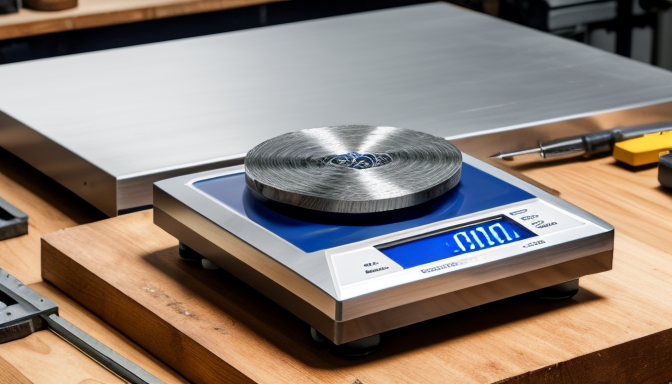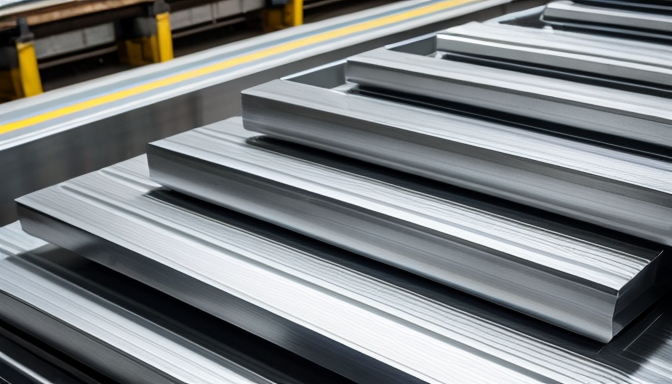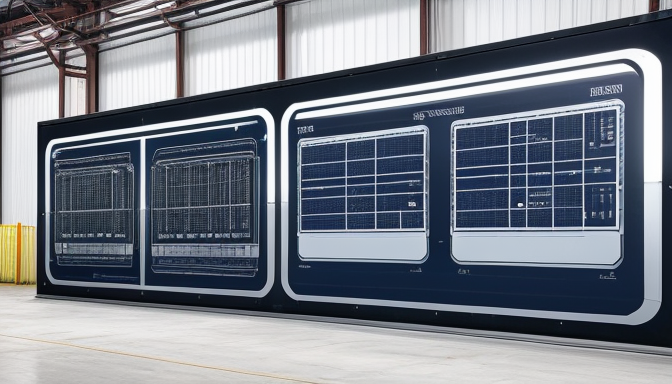When it comes to construction and manufacturing, ST37 steel sheets are a popular choice. Why? Because they offer a great balance of strength, durability, and affordability. These sheets are made from a low carbon steel, which means they are easy to work with. Imagine building a strong foundation for a house or a sturdy frame for machinery. That’s where ST37 steel shines.
But what exactly makes ST37 steel sheets so appealing? First off, they are versatile. You can find them in various industries, from automotive to construction. They are used in making parts that need to withstand stress while remaining lightweight. This is crucial when you think about how much weight a structure can handle without collapsing.
Now, let’s talk about the essential aspects of ST37 steel sheets. They are not just any ordinary sheets. Their properties, such as tensile strength and corrosion resistance, make them stand out. You might be wondering, “What are those properties?” Well, tensile strength refers to how much pulling force the material can withstand without breaking. Corrosion resistance is its ability to resist rust and wear over time. This means that using ST37 steel sheets can save you money in the long run, as they require less maintenance.
In addition to their properties, the sizes of ST37 steel sheets vary. This is important because different projects have different needs. Some might require large sheets for extensive structures, while others might need smaller pieces for intricate designs. It’s like choosing the right size of a puzzle piece to fit perfectly in the bigger picture.
To sum it up, ST37 steel sheets are a reliable choice for many applications. They combine strength, versatility, and cost-effectiveness. Whether you’re a contractor looking for materials or a DIY enthusiast, understanding ST37 steel sheets can help you make informed decisions. So, next time you’re planning a project, consider these sheets. They might just be the perfect fit for your needs.
ST37 Steel Sheet Price
Understanding the pricing factors of ST37 steel sheets is crucial for budget planning. Prices can vary widely based on several elements. First off, let’s talk about market trends. The demand for steel fluctuates, which can cause prices to rise or fall. When the construction industry is booming, prices tend to go up. Conversely, during economic downturns, prices might drop. It’s a bit like a seesaw, constantly shifting.
Next, we have supplier pricing. Different suppliers have different pricing strategies. Some might offer discounts for bulk purchases, while others may have premium pricing due to their reputation for quality. It’s essential to shop around. You wouldn’t buy the first car you see, right? The same goes for steel sheets. Always compare prices from multiple suppliers.
Quality is another significant factor affecting costs. Higher quality ST37 sheets, which have better mechanical properties and corrosion resistance, will generally cost more. Think of it like buying a pair of shoes. A well-made pair might be pricier but will last much longer than a cheap pair that falls apart after a few wears.
To give you a clearer picture, here’s a simple price range table for ST37 steel sheets:
| Thickness (mm) | Price per Ton ($) |
|---|---|
| 1.0 | 600 |
| 2.0 | 580 |
| 3.0 | 570 |
| 4.0 | 560 |
As you can see, prices can vary not just by thickness but also by the supplier. When planning your budget, consider these factors carefully. It’s not just about the upfront cost but also about the overall value you’re getting.
In conclusion, the price of ST37 steel sheets is influenced by market trends, supplier pricing, and quality. Always do your homework before making a purchase. This way, you can ensure that you’re getting the best deal for your project needs. Remember, a little research can save you a lot of money!

ST37 Steel Sheet Weight
The weight of ST37 steel sheets is an important factor to consider, especially when planning for transportation and structural applications. Why does weight matter? Well, heavier sheets can mean higher shipping costs and more robust structural support. So, understanding how to calculate the weight based on dimensions and thickness can save you both time and money.
To determine the weight of ST37 steel sheets, you can use a simple formula. It’s based on the dimensions of the sheet and the density of the material. The density of ST37 steel is approximately 7.85 grams per cubic centimeter (g/cm³). Here’s the formula:
Weight (kg) Length (m) x Width (m) x Thickness (m) x Density (g/cm³) / 1000
Let’s break it down further. Imagine you have a sheet that is 2 meters long, 1 meter wide, and 0.01 meters thick. Plugging those numbers into the formula gives:
Weight 2 x 1 x 0.01 x 7.85 / 1000 0.157 kg
So, that sheet would weigh about 0.157 kilograms. Easy, right? But remember, if you’re working with larger sheets or multiple pieces, the weight can add up quickly. Here’s a quick reference table to help you visualize weights for different thicknesses:
| Thickness (mm) | Weight per square meter (kg) |
|---|---|
| 1 | 7.85 |
| 2 | 15.7 |
| 3 | 23.55 |
| 4 | 31.4 |
| 5 | 39.25 |
As you can see, the weight increases significantly with thickness. This is especially critical for projects requiring precise load calculations. For instance, if you’re constructing a building or a bridge, knowing the weight of each sheet helps in ensuring that the structure can support the load without compromising safety.
In summary, understanding the weight of ST37 steel sheets not only helps in budgeting for material costs but also plays a vital role in project planning and structural integrity. Always keep in mind the dimensions and thickness of the sheets you’re working with. It’s all about making informed decisions.
ST37 Steel Sheet Properties
ST37 steel sheets are widely recognized for their unique properties, making them a top choice in various industries. But what exactly makes them stand out? Let’s dive into the key characteristics that define ST37 steel sheets.
First off, these sheets exhibit excellent mechanical properties. They have a good tensile strength, typically around 370 MPa. This means they can handle a lot of stress before breaking. Think about it like a strong rope that can hold a heavy weight without snapping. It’s crucial for applications where durability is key.
Another important aspect is their corrosion resistance. While ST37 steel does not have the same level of corrosion resistance as stainless steel, it can still perform well in environments that aren’t overly harsh. This makes it suitable for structural applications where exposure to moisture is a concern. However, it’s always wise to apply a protective coating if you’re using it in more corrosive environments.
Now, let’s talk about the chemical properties. ST37 steel is primarily composed of iron, with a small percentage of carbon—usually around 0.2%. This low carbon content gives it good weldability. It’s like having a friend who gets along with everyone; you can easily join pieces together without worrying about complications.
When it comes to formability, ST37 steel sheets shine. They can be easily shaped and molded into various forms. Whether you’re bending, cutting, or welding, this steel adapts well to different manufacturing processes. It’s like working with clay; you can create whatever shape you need without much hassle.
Let’s summarize some of the standout properties of ST37 steel sheets in the table below:
| Property | Description |
|---|---|
| Tensile Strength | Approximately 370 MPa |
| Corrosion Resistance | Moderate, suitable for non-harsh environments |
| Chemical Composition | Low carbon content (around 0.2%) |
| Formability | Excellent for bending and shaping |
In conclusion, the properties of ST37 steel sheets make them an excellent choice for various applications. Their balance of strength, formability, and moderate corrosion resistance provides a reliable solution for many structural needs. If you’re considering using ST37 steel sheets in your next project, you can feel confident knowing you’re choosing a material that stands the test of time.

ST37 Steel Sheet Sizes
When it comes to ST37 steel sheets, size really does matter. Choosing the right dimensions can make or break a project. Whether you’re constructing a building or fabricating machinery, having the right size is crucial. So, what options do you have? Let’s dive into the details.
ST37 steel sheets are available in a variety of sizes to cater to different needs. Typically, these sheets come in standard sizes like 1000mm x 2000mm, 1250mm x 2500mm, and more. However, if those sizes don’t fit your project, many suppliers offer custom sizes. This flexibility is a game changer for anyone working on unique projects.
Understanding the dimensions is only part of the equation. Thickness is another important factor. Standard thicknesses can range from 1mm to 20mm. But why does thickness matter? Well, thicker sheets provide more strength and durability, making them ideal for heavy-duty applications. On the flip side, thinner sheets are easier to work with and can be used for lighter structures.
To give you a clearer picture, here’s a simple table that breaks down some common sizes and thicknesses:
| Standard Size (mm) | Thickness Range (mm) |
|---|---|
| 1000 x 2000 | 1 – 20 |
| 1250 x 2500 | 1 – 20 |
| 1500 x 3000 | 1 – 20 |
Now, let’s talk about the practical side of choosing sizes. If you’re working on a large project, you might want to consider buying larger sheets. This can reduce waste and make the cutting process easier. On the other hand, if your project is small, smaller sheets might be more cost-effective. It’s all about finding that sweet spot for your specific needs.
In summary, when selecting ST37 steel sheets, consider both the size and thickness. The right choice can lead to better performance and lower costs. Remember, every project is unique, and understanding your size options can help you make the best decision.
Frequently Asked Questions
- What is ST37 steel sheet used for?
ST37 steel sheets are commonly used in construction and manufacturing due to their excellent weldability and machinability. They are ideal for making structures like beams, bridges, and various machinery components.
- How do I determine the weight of an ST37 steel sheet?
To calculate the weight of an ST37 steel sheet, you can use the formula: Weight Length x Width x Thickness x Density. The density of ST37 steel is typically around 7.85 g/cm³. Just plug in the dimensions, and you’ll get the weight!
- What factors affect the price of ST37 steel sheets?
The price of ST37 steel sheets can vary based on several factors such as market demand, quality of the steel, thickness, and the supplier’s pricing strategy. Keeping an eye on market trends can help you find the best deals.
- Are custom sizes available for ST37 steel sheets?
Absolutely! Many suppliers offer custom sizes for ST37 steel sheets to meet specific project requirements. Just reach out to your supplier to discuss your needs, and they’ll usually accommodate!
- What are the mechanical properties of ST37 steel?
ST37 steel sheets are known for their good tensile strength, typically around 370 MPa, and excellent ductility. These properties make them suitable for various structural applications.
- Is ST37 steel resistant to corrosion?
While ST37 steel has decent corrosion resistance, it is not considered a stainless steel. For environments prone to corrosion, it’s advisable to apply protective coatings or use stainless steel alternatives.
